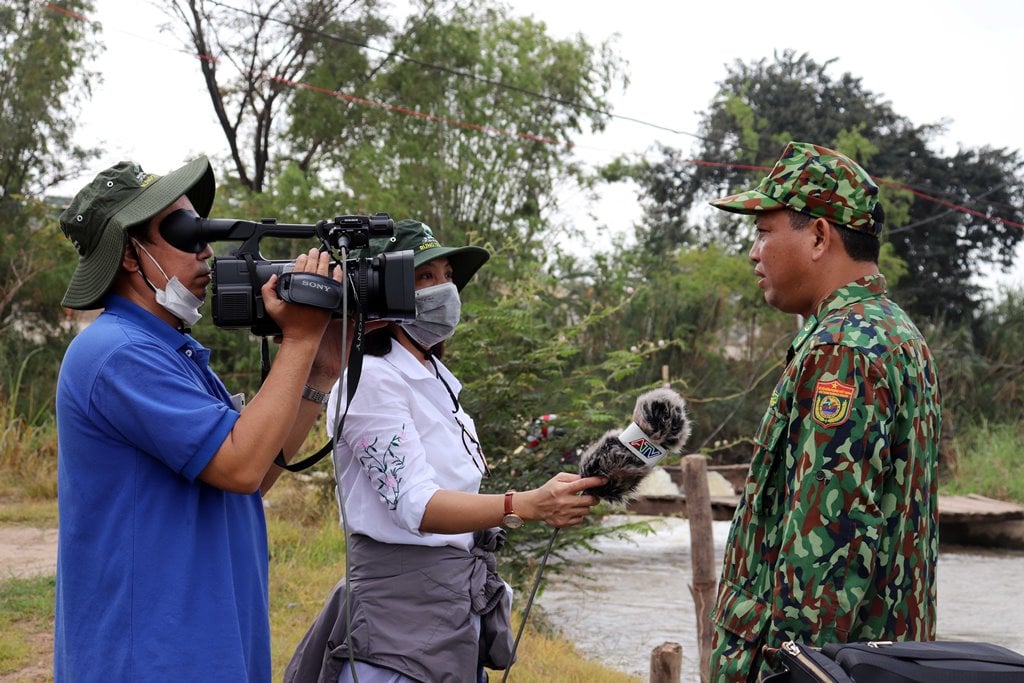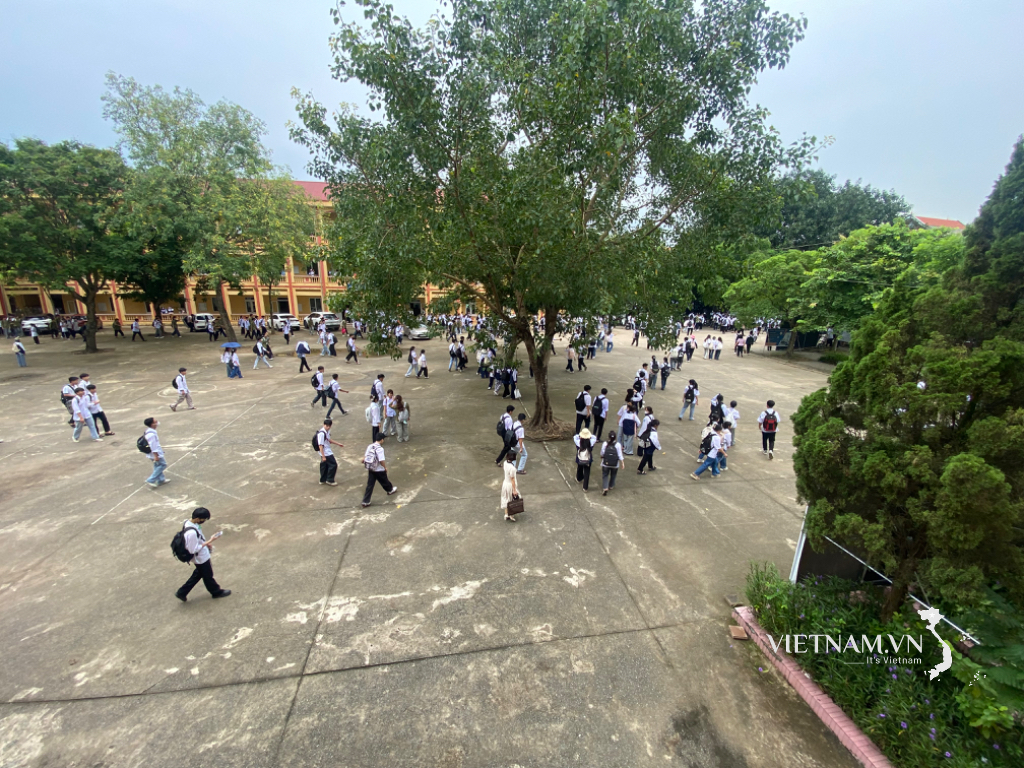Every time we cover a charitable event, we meet Ms. Le Thi Kim Linh, who plays a crucial role in connecting and helping those in need and suffering from illness in Phu Tan district. Ms. Kim Linh leads us across dozens of kilometers, venturing into remote areas, regardless of the rain and strong winds that tear our thin raincoats. The rural terrain is winding, crossing canals, bridges, and rice fields… it takes a long time to find the homes of those who need help. Ms. Linh recounts: “Back at An Giang Newspaper, there was Mr. Doan Phuoc, later Mr. Nguyen Rang, and many other young reporters who accompanied me. Everyone was enthusiastic and diligent, going to the locations to understand the circumstances and returning many times to deliver the financial support from readers. Articles published in the newspaper helped many people in need, and the amount of money raised was much more than what we raised ourselves.”
It's not just the names mentioned; looking back at our journalist colleagues, some have passed away, retired, or moved on to other professions... yet people still remember, inquire about, and praise them. As indirect listeners, we also share in the joy of receiving such affection. The older generations and the current generation of journalists have left their mark wherever they go through their communication, behavior, dedication to the profession, and how their articles benefit the lives of the people… Sometimes, people can't remember the names, but they mention "the witty journalist," "the young reporter who writes well and has a sweet voice"… Or when reading an agricultural article, they'll definitely look for one journalist's work because of their genuine, approachable tone; when reading a tourism article, they'll like another's because of its captivating descriptions…
Journalists from the province are working at the border.
Since the intensified implementation of the National Target Program for New Rural Development, the One Commune One Product (OCOP) program, and agricultural extension activities, reporters have had more opportunities to work in-depth on the agricultural sector. Ms. Ngoc Tho (owner of an OCOP mulberry product) shared: “By having our models featured in newspapers, on television, and spread on social media, we have sold more products and expanded our customer base. For new models, thanks to media coverage, local authorities have shown interest and provided faster support for trademark registration, loans, and quality improvement…”
I remember during the COVID-19 pandemic, people jokingly said that waiting for instructions on social distancing was like waiting for the lottery. Everyone anxiously awaited information from the authorities, even though some private sources had already posted it early on social media, sparking lively discussions. Ultimately, people still waited for official information from the press. As soon as the provincial document was issued, An Giang Newspaper was quick to publish it on its website and Facebook. Readers quickly shared and commented: "The press is publishing official news, so it's correct, folks!"; "I only dare to believe it when it's in the newspaper." Similarly, when a hot topic or event arises in society, especially regarding security and order, information about provincial mergers, counterfeit goods, or new policies issued from the central to local levels... journalists like us still find comfort in the fact that amidst the "sea" of information on social media, readers choose to place their trust in the official press.
The trust of readers once again affirms the role of journalism in providing accurate, timely, and complete information. At the same time, it places a higher burden on journalists in this era of rapidly developing technology and information explosion. Today's media outlets not only perform their professional duties of providing news and articles to shape public opinion, but also actively participate on social media to bridge the gap in information regarding the Party's guidelines and the Government 's latest policies to the people. Adapting to readers in the digital environment, media outlets interact on social media, grasping trends in conversation and communication to create closeness and enhance interaction between readers and the newsroom.
From traditional journalism requiring bulky backpacks filled with equipment, we now prioritize compact, lightweight, high-quality, multi-tasking tools. Our team strives to keep pace with this innovative trend, becoming more dynamic in the eyes of our readers: With just a phone in hand, we can type text, edit photos, send articles to the editorial office, interact with the community, exchange information, and receive assignments from superiors... all quickly and flexibly. In a subtle way, with lightweight equipment, when approaching people to document their daily lives, they also feel more comfortable, without the pressure of standing in front of cumbersome equipment or having to force themselves to appear hardworking.
Currently, not only in the journalism industry, but all participants in the labor market are concerned and worried about the risk of being replaced by AI. We believe that, through their passion, dedication, and commitment to the profession, the mark each journalist leaves on the hearts of readers… will be irreplaceable. Ultimately, journalism is about being human, whether through simple, unpretentious language or polished prose, along with a personal style that will be remembered and recognized by readers.
MY HANH
Source: https://baoangiang.com.vn/dau-an-nhung-nguoi-lam-bao-a422801.html




![[Photo] General Secretary To Lam meets with and extends New Year greetings to the Central Party Office.](https://vphoto.vietnam.vn/thumb/1200x675/vietnam/resource/IMAGE/2026/02/23/1771822040571_a1-bnd-6844-9653-jpg.webp)




![[Photo] Nhan Dan Newspaper's New Year's gathering in the year of the Horse 2026](https://vphoto.vietnam.vn/thumb/1200x675/vietnam/resource/IMAGE/2026/02/23/1771825639110_gap-mat-dau-xuan1-8272-jpg.webp)

































































































Comment (0)